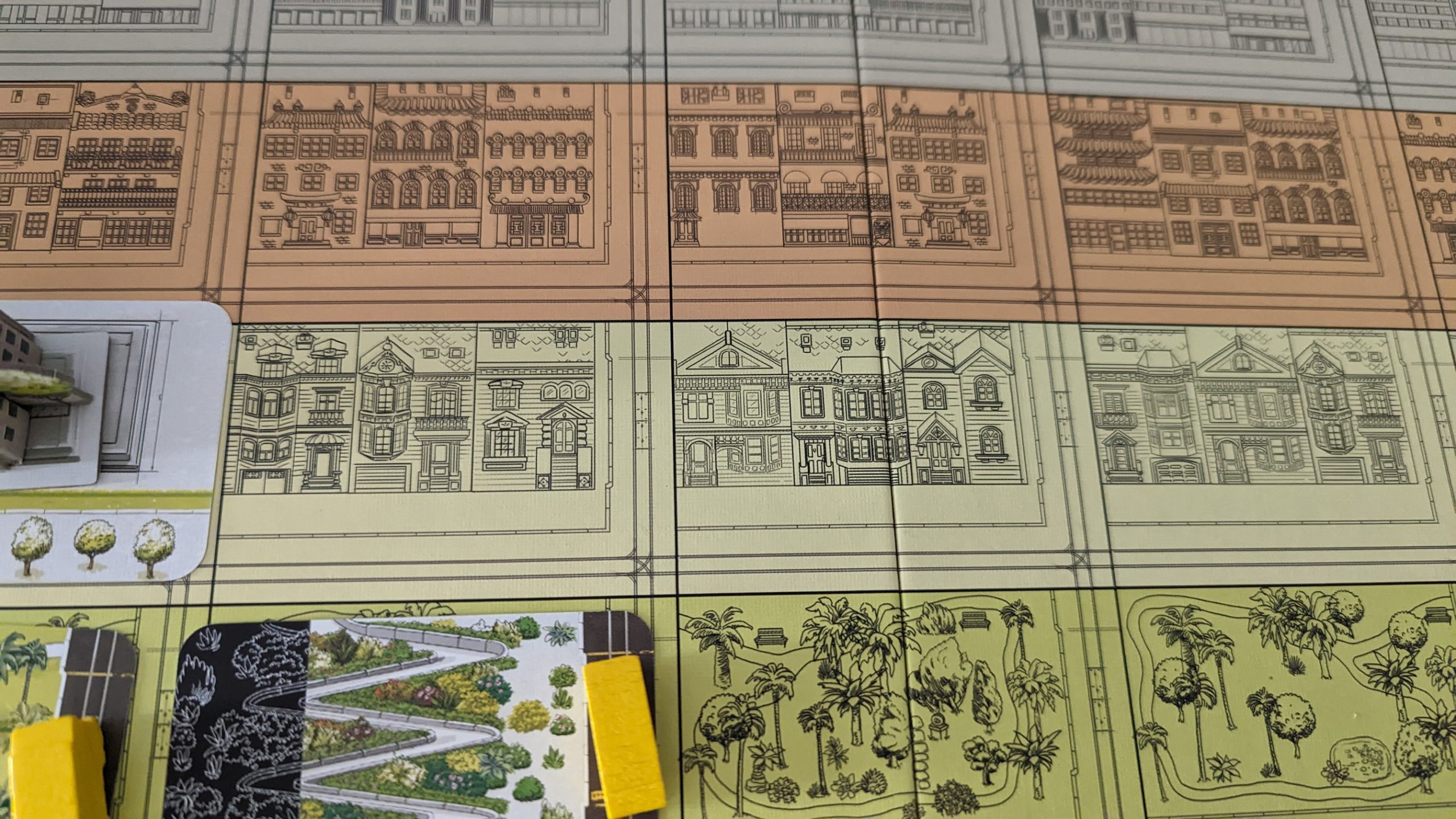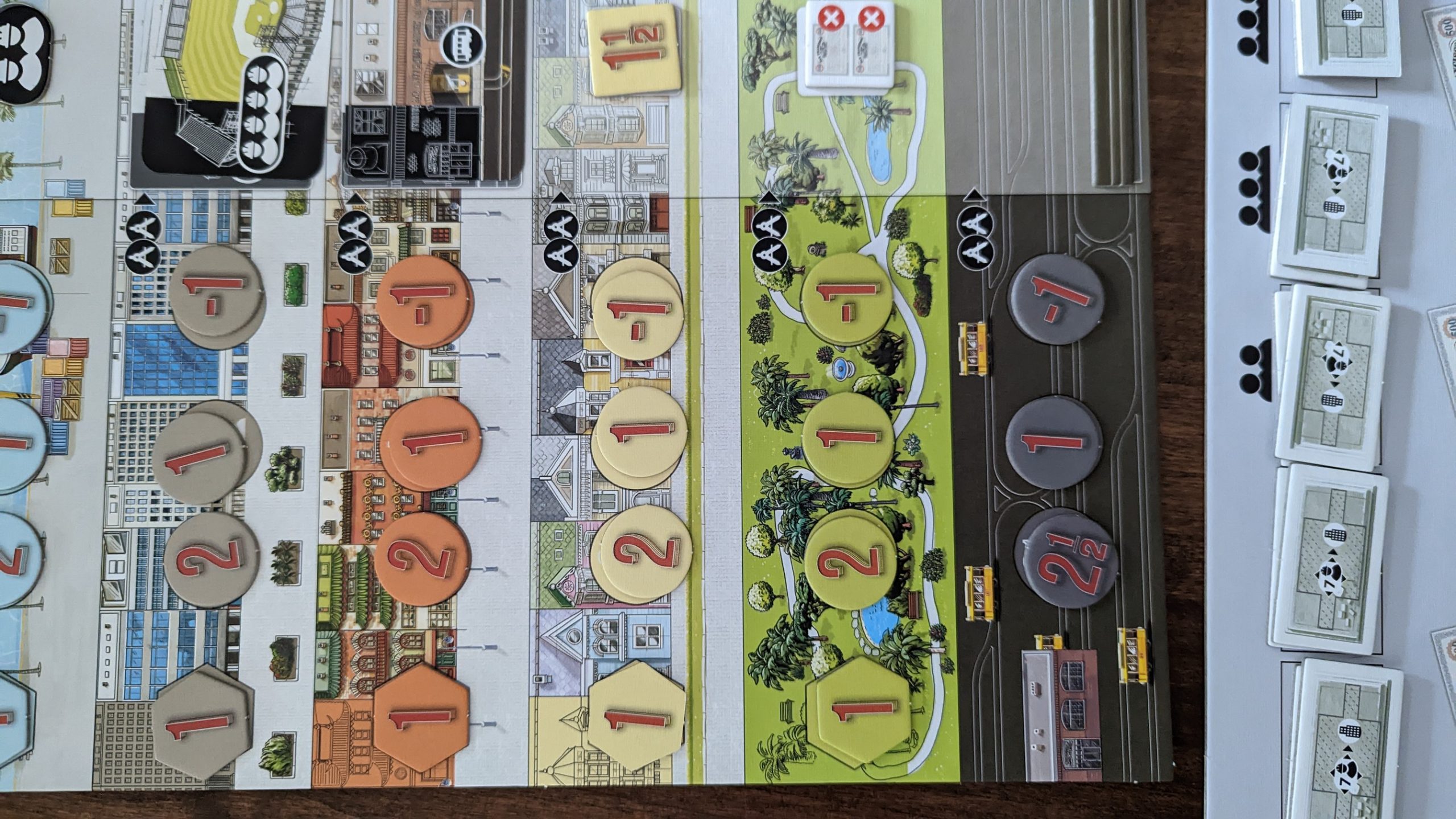I’m a self-described Knizia fanboy, so I was extremely excited when I saw we had received his newest design for review. As such, it gives me no joy to tell you that San Francisco is undoubtedly one of his weaker endeavors.
It all starts out promising enough with Knizia’s trademark simple rules: on a player’s turn, they either take a stack of cards and a contract to add them to the respective zones on their city board, or draw a card from the deck and add it to a stack of their choice. The twist is, you can only pick up stacks that have more cards than you have contracts. Additionally, there always has to be a player with no contracts, so when the last person without one picks up a stack, everyone discards a contract. At first blush, this is a simple enough balancing mechanic that keeps one person from gobbling up all the cards and rewards discretion when choosing to pick up or add to stacks. In practice, however, it handcuffs the game to the pickiest player, which will feel more like cement shoes if they also suffer analysis paralysis. In a deeper game, this would’ve been less noticeable, but San Francisco lacks the emergent gameplay present in Knizia’s stronger outings.

I could point to a number of issues that hold San Francisco’s gameplay back, but the main culprit is a lack of player agency. In most city builders, players decide where they place everything in their city, but here you’re just putting cards down left to right in their corresponding zones. Don’t get me wrong, adjacency matters, as skyscrapers can be built upon foundations once there are seven adjacent worker icons, and cards with track will be added to your cable car network, which functions as an extra zone for end-game scoring. Along with the skyscrapers, there are additional in-game points for the first player to complete each region, but with the contracts acting as a speed limiter, it doesn’t function as the race you’d think it would. In fact, every game I’ve played had the player with zero contracts pick up multiple region completion bonuses. The game ends as soon as either the last foundation has been placed or somebody fills their city board, and players start totaling workers for end-game scoring. Players compare workers in each region (except for cable car network, which in an unnecessarily complicating divergence from everything else, simply counts numbers of cars), with the most and least getting rewards or punishments, similar to military in Seven Wonders.

This would have worked better as a shorter small-box card game, as there’s just not enough game here for a full size game, and the questionable component quality only serves to highlight that fact.





















